The Transat: Class40 Collision with Cargo Ship
Published on May 3rd, 2016
(May 3, 2016; Day 2) – After the first night at sea for the 25 boats in The Transat bakerly solo transatlantic race from Plymouth to New York, French yachtsman Maxime Sorel has been forced to abandon the race today after his boat crashed into a container ship.
Sorel and his Class40 VandB was among the leaders in the 10-strong fleet, racing downwind in the northern Bay of Biscay about 90 nautical miles west of Lorient when he reported a collision.
The boat suffered damage to its bowsprit, forcing Sorel to head to the French port La Trinite sur Mer in Brittany. Sorel is safe and uninjured and the boat’s mast is stable but he is very disappointed to have to retire.
The collision happened in broad daylight and good visibility this morning, in an area of busy commercial shipping off the Brittany coast.
Sorel said he was keeping watch as VandB sailed under spinnaker but he did not see the cargo ship. “I was not sailing particularly fast and I tried to avoid it but it was too late,” said the French skipper as he limped toward the coast.
He said he had two options when he realised a collision was inevitable. Either hit the ship lengthways which risked bringing VandB’s mast down or hit the ship at an angle, helping to confine the damage to the bowsprit. “I’m stressed seeing all these freighters around me,” he added. “I have this image in my head and when I see one, I get stressed about it.”
Sorel is hoping to reach port tomorrow morning. Reflecting on the cruel hand that fate played, he commented: “I’m disappointed. You (the organisers) called me this morning to tell me that I was leading the Class40s and now you call to talk to me about why I am giving up. It’s disappointing to have to retire like this.”
Elsewhere in the Class40 fleet, the sole British entry in the class, Phil Sharp on board Imerys, has been referred to the Race Committee Jury after apparently sailing through an area of water restricted to commercial shipping at Ushant. The Traffic Separation Scheme (TSS) off that busy corner of France is strictly out of bounds to the yachts in the race rules.
Sharp has been sailing a superb race in the early stages, regularly holding the lead, but he may face a penalty for the infringement. Contacted on the sat phone he said he had not realised the TSS was out of bounds.
“I was aware of the TSS and I kept well out of the shipping lane, but I wasn’t aware that it was a restricted zone – I wasn’t aware that there was a boundary,” he said. Sharp also revealed that he nearly lost his spinnaker when it detached from the rig as he was down below and ended up in the water behind the boat.
“I looked up one time and the spinnaker was just not there,” he said. “I went on deck to find the whole thing in the water. But it’s fine and not damaged. I managed to get it back and re-hoist it after a couple of minor repairs.”
The Transat bakerly is already featuring some classic battles. At the front of the fleet the two leading Ultimes, Macif (Francois Gabart) and Sodebo (Thomas Coville) are a little more than a mile apart, heading down the Portuguese coast while, behind them in the southern Biscay, a battle royal is developing in the IMOCA 60 class.
The leader by a whisker is the hugely experienced Vincent Riou on board PRB who is just managing to stay ahead of the two leading foiling boats – Sébastien Josse’s Edmond de Rothschild in second place and Armel le Cleac’h’s Banque Populaire in third.
“Everything is fine, but we had to do a lot of manoeuvres during the night – it was a bit complicated, but as expected and I’m pretty happy with my position,” reported Riou earlier in the day. “The conditions are favourable for the foiling IMOCAs and will continue to be for a few days.
“I’m currently sailing under spinnaker in around 12 knots of wind. I’m trying to move quickly, but there is quite a lot of swell and there are still some sail changes to make. I’m staying vigilant, always looking out for the next transition. The weather is pretty nice compared to yesterday’s start and I was able to get some rest this morning. I am in good shape,” Riou added.
UPDATE: At around 1900hrs GMT+2, Erwan Le Roux, the skipper of FenêtréA Cardinal, sustained substantial damage to the port float on his Multi50 trimaran. Erwan was leading the Multi50 fleet when the incident occurred, sailing downwind in a northeasterly 25-27 knots, and was approximately sixty miles off Cape Finisterre. He managed to secure his boat and is now in regular contact with his weather man to find the best landing point between Portugal and Spain, and is sailing at a reduced speed on a heading of 135°.
Event website – Tracker – Facebook
About The Transat
The OSTAR (Observer Singlehanded Trans-Atlantic Race) was created in 1960 by a handful of pioneering sailors. The race was organised every four years by the Royal Western Yacht Club (RWYC) from 1960 through to the 2000 event, albeit with a lot of involvement from the French event organiser Pen Duick in the 90s, in order to cater for the demands of the professional campaigns that dominated the event.
After the 2000 edition, OC Sport stepped in to develop the event and acquired the rights to the professional part. OC Sport organised The Transat in 2004 and 2008, the 2012 edition was deferred at the request of IMOCA (the largest competing class).
The RWYC continues to organise a solo transatlantic race for Corinthian and non-professional sailors that is still known as the (O)STAR,. This race usually falls a year after the professional big boat race i.e. 2005, 2009, 2013, 2017. Both the amateur Yacht Club event and The Transat have the right to link to the history of the original race created in 1960, and to the rich history it has produced.
The first race was competed by just a handful of pioneering sailors including Francis Chichester and Blondie Hasler who coined the phrase: “One man, one boat, the ocean.” There has been tragedy, dramatic rescues and exceptional drama since the race began in 1960. Over time The Transat, as it is known today, has evolved and now serves the professional end of offshore sailing. But there are few modern day races that can reflect on such a long and outstanding history.
Monohull IMOCA 60 record: 12 days, 11 hours and 45 minutes set by Loick Peyron (FRA) on board Gitana in 2008. Multihull 60ft record: 8 days, 8 hours, 29 minutes set by Michel Desjoyeaux (FRA) on board Géant in 2004.
Source: The Transat


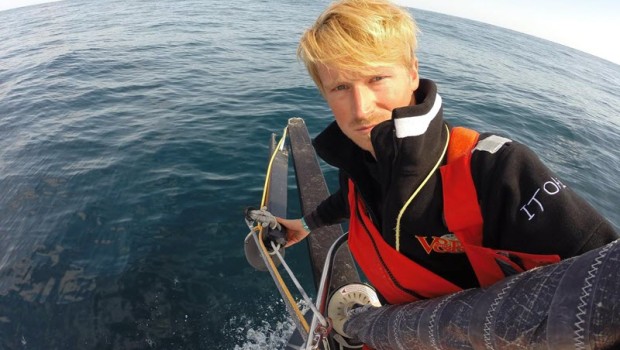

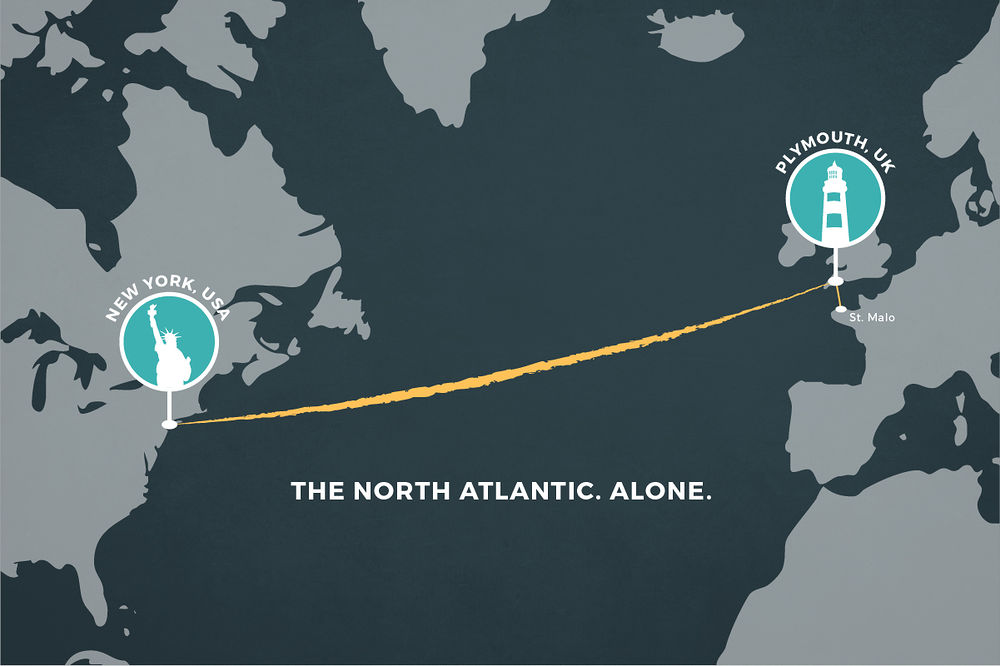

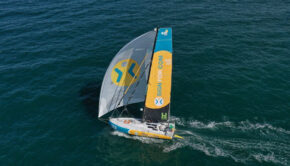
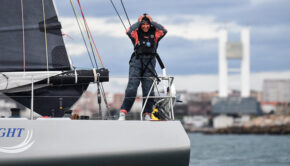
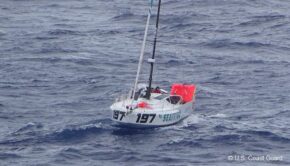
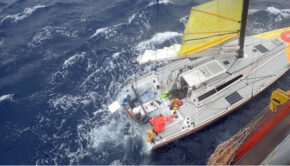
 We’ll keep your information safe.
We’ll keep your information safe.